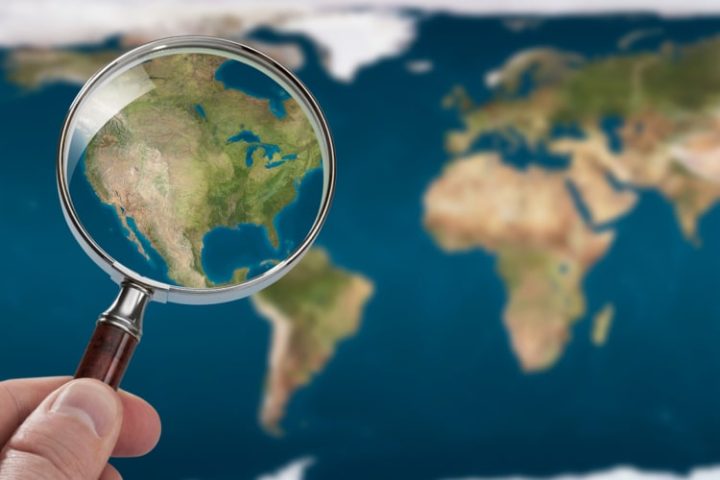
The global economy is reportedly in decline as we deal with one of the greatest political, social, and economic upheavals the world has faced.
The 2022 Index of Economic Freedom recently published by the Heritage Foundation exposes a global economy that is dealing with one of the greatest political, social, and economic upheavals in generations. The economic livelihoods of millions of people have been profoundly disrupted not only by the health impacts of the pandemic but also by governments’ inept responses to it.
This year’s comprehensive Index includes:
• The key findings for America and 176 other countries around the world.
• 12 economic freedoms measured along with where each country ranks.
• Cross-country comparisons that highlight why freedom matters now more than ever.
The Index of Economic Freedom found that with the extraordinary restrictions and policies that have reduced or destroyed economic opportunity during the pandemic, economic freedom is declining across the globe. And the United States is no exception. The U.S. dropped from a high of fourth place in 1995 to 25th place— its lowest ranking ever.
On the optimistic side, the United States’ economic freedom score of 72.1, still ranked the U.S. 3rd among 32 countries in the Americas region, and its overall score is above the regional and world averages. Only Canada’s score of 76.6 and Chile at 74.4 outrank the United States, according to the index. It may seem surprising that socialistic countries could rank better than the United States, but one factor that should be kept in mind is that the U.S. has become increasingly socialistic over time.
According to the index, the United States is suffering from a decade-long trend of flagging economic freedom, which was driven lower by a sharp decrease in its fiscal health score — to a rock-bottom zero percent! With all 12 economic-freedom categories scored equally, the zero-percent score in this category significantly pulled down the country’s overall economic-freedom score.
Disturbingly, the U.S. has recorded a 3.0-point overall loss of economic freedom since 2017 and has fallen from the upper half to the lower half of the “Mostly Free” category. In the business freedom and rule of law categories the U.S. scored quite well, but the economy is being crushed by reckless government overspending.
In contrast to the United States, the top three ranked countries in the world are Singapore, Switzerland, and Ireland.
Singapore’s free-market economy owes its success to its remarkably open and corruption-free business environment, prudent monetary and fiscal policies, and a transparent legal framework. Singapore’s trade freedom is strong according to the index, and well-secured property rights promote entrepreneurship and innovation effectively. Their overall rule of law is reinforced by a high degree of transparency and government accountability.
Switzerland is ranked 1st among 45 countries in the Europe region. Even with a decline in 2020 due to the pandemic, Switzerland has recorded a 2.7-point overall gain of economic freedom since 2017 and is firmly established in the “Free” category, trailing first-place Singapore by only 0.2 point.
Ireland’s economy had slowed over the past five years before picking up steam in 2021. Ireland has been a role model for countries that are seeking to achieve greater economic freedom. With their increases in scores for rule of law and fiscal health, Ireland has registered a 5.3-point overall gain of economic freedom since 2017 and now seems firmly established in the highest, “Free” category in the Index.
The pandemic has definitely made an impact on this year’s Index of Economic Freedom report. Kevin D. Roberts, president of the Heritage Foundation, wrote in the preface:
“The ultimate cost of the pandemic remains unknown and difficult to predict. From an economic policy point of view, nonetheless, the imperative now is for governments to avoid compounding the problem with ill-advised actions that upend markets, destroy incentives to work and innovate, or otherwise diminish the prospects for rapid recovery and growth. In the long run, the proven way to revitalize the economic life of societies in the most broad-based, meaningful way is by restoring what we know has worked best: economic freedom undergirded by strong and virtuous local communities, not greater government control and management.”
This brief article is just a small glimpse into the comprehensive 2022 Index of Economic Freedom report, which is available here. There is also this Web page, which includes interactive heatmaps, graphs, and comparison charts. The index explains the factors it considered for coming up with the country-by-country scores for each of the 12 categories. But it does not provide the particulars to show how it was able to calculate scores to a tenth of a percent, and readers may reasonably differ to some extent with particular scores, while still viewing those scores as being in the ballpark and the report a useful measure of economic freedom throughout the world.
David Kelly is a self-taught, life learner who enjoys research and writing on politics, history and economics.



